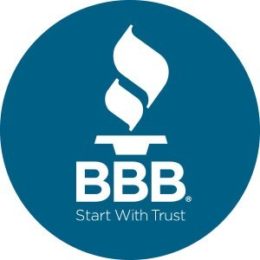![]()

Amid a nationwide surge in remote employment interest, scammers have infiltrated the job market.
The Better Business Bureau has received more than a dozen reports of employment scams this year in Nebraska alone, which has cost victims more than $10,000.
In the past month, a victim reported losses of nearly $4,000 after she applied for a position on LinkedIn. A company claiming to be LSB Industries Inc., a legitimate producer based in Oklahoma City, posted a remote data entry position. After the woman successfully interviewed for the position and was offered the role, a contract and W-4 form was sent to her to complete. To secure the necessary equipment and software for a home office, the victim was instructed to use electronic checks to deposit money into her bank and then send money to vendors via peer-to-peer payment methods like Apple Pay and Zelle. However, the checks ultimately bounced and the hiring manager ceased communicating with the victim, who lost $3,850.
Many of the employment scams monitored by the BBB involve fraudulent checks, including one such incident that was reported in January by a UNL student. The student applied for an Administrative Assistant position they thought was available through the university. A man claiming to be someone named Bob Moore informed the victim that their company donated to orphanage homes every month and that the victim should purchase toys and other relief items for the homes on behalf of the organization. Funds in the form of a cashier’s check would be provided to the victim for the purchase of the items. The victim was later asked to use peer-to-peer payment methods like Zelle, Cash App and Coinbase to transfer funds.
Some victims have reported being asked to reship goods purchased with stolen credit cards, another popular scheme that a BBB in-depth investigative study — Job Scams: BBB study finds job scams increased during pandemic, warns job seekers to verify employment offers to avoid illegal jobs, identity theft and fake checks — detailed in September 2021.
Many of the Nebraska victims who reported their experiences were between the ages of 18 and 24, with all reports coming from those under the age of 34.
How the scam typically works
You receive a message from someone interested in hiring you. It might come through email, text, or even a social media platform. At first, this “recruiter” seems professional. They claim to have seen your resume on a job search site and want to interview you for a position. But first, you need to download a messaging app, such as Telegram.
Once you download the app, the “recruiter” will begin sending you messages and will ask you to complete a few interview questions. After giving you enthusiastic feedback, they will offer you a position with their company. That is followed by an official-looking contract to fill out and sign. After you sign, the scammer will ask for your name, address, date of birth, and banking information, claiming they need to add you to direct deposit payroll and other company systems. If you provide this sensitive information, you could easily become a victim of identity theft.
Some versions of this scam don’t end there. As a new hire, you are referred to a “training manager” who will help you set up your home office. This person sends you a check to buy a laptop and other supplies. After depositing the check, your contact will say that you were overpaid and need to return a portion of what you deposited. However, the check is a fake, and any funds you “return” to your new employer will be long gone.
How to avoid employment scams:
- Research job offers first. Visit a company’s website and look up their contact information. Verify the company exists and the job posting is real before you interact with a stranger. Do an internet search with the company’s name and the word “scam” to see if anyone has reported a fake job offer. Look on BBB.org to see any unresolved complaints or negative reviews.
- Beware of jobs that involve receiving and returning money. Legitimate companies don’t generally send money to new employees before work is done. They certainly don’t ask you to return funds that you’ve already been paid.
- Be careful with your personal information. Never provide anyone with your personal information until you are sure you can trust them with it. Do all the necessary research before divulging anything personal. Never let someone pressure you into giving up your personal information because it’s a “now or never” offer.
- Watch out for easy hires. If a company claims they want to hire you without meeting you either virtually or in-person, and if they don’t conduct a job interview, you’re probably dealing with a scammer.
Read the BBB’s job scams study to learn more about employment scams and how to avoid them. You can also find good general information at BBB.org/AvoidScams.
Become a skilled scam spotter by visiting BBB.org/SpotaScam and report any suspicious activity to BBB.org/ScamTracker.
ABOUT BBB: BBB is a nonprofit, business-supported organization that sets and upholds high standards for fair and honest business behavior. BBB services to consumers are free. BBB provides objective advice, BBB Business Profiles on more than 5.3 million companies, 11,000 charity reviews, dispute resolution services, alerts and educational information on topics affecting marketplace trust. Visit BBB.org for more information.
